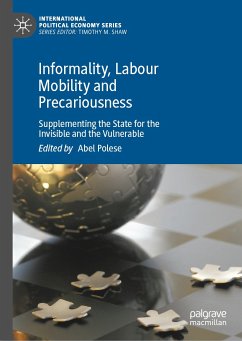- Jeremy Morris, Aarhus University
"A must read for global citizens facing informality and conflicting moral orders. A journey towards setting up the boundary between corruption and solidarity. Learn from this book and act for a better world."
- Ibrahim Sidi Zakari, Université Abdou Moumouni, Global Young Academy's member
From the erosion of state legitimacy in Lebanon to the use of smartphones in Kyrgyzstan, from a Polish suburb to the music scene in Azerbaijan, this volume attempts to explain why, in a variety of world regions, a substantial number of people tend to ignore or act against state rules. Wepropose to look at informality beyond simplistic associations of the phenomenon with a single category such as "informal labour" or "corruption". By doing this, we propose to look for a correlation between the emergence, and persistence, of some informal practices and the quality of governance in a given area. We also suggest that a better understanding of the variety of informal practices present in a region can help conceptualising more adequate interventions and eventually improve the socio-economic conditions of its inhabitants.
Abel Polese is a researcher, trainer, writer, manager and fundraiser with experience in Africa, Asia, Europe, the Middle East and the Americas. He is interested in informal governance, development, mental health in academia an support for scholars at risk and researchers from the Global South. He is the author of "The SCOPUS Diaries and the (il)logics of Academic Survival: A Short Guide to Design Your Own Strategy and Survive Bibliometrics,Conferences, and Unreal Expectations in Academia", a reflection on academic life and the choices and obstacles scholars face in the course of their career.
Dieser Download kann aus rechtlichen Gründen nur mit Rechnungsadresse in A, B, BG, CY, CZ, D, DK, EW, E, FIN, F, GR, HR, H, IRL, I, LT, L, LR, M, NL, PL, P, R, S, SLO, SK ausgeliefert werden.









